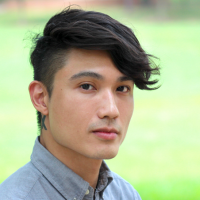Q&A:Bobby Benedicto’S Insights On Lgbt Communities In Postcolonial Manila
November 16, 2015

Women's Studies Professor Bobby Benedicto talks about his ethnographic work "Under Bright Lights."
Bobby Benedicto, newly arrived assistant professor in the Department of Women’s Studies, specializes in queer theory, postcolonial studies and urban anthropology. His book “Under Bright Lights: Gay Manila and the Global Scene” —finalist for the 2015 LAMBDA Literary Awards and recipient of a Ruth Benedict Book Prize honorable mention— is the first ethnography on contemporary gay life in Manila, Philippines.
What interested you in this research?
Originally, I was interested in this because I identified with it. I had left Manila to do graduate school at York University, then attended the University of Melbourne. Manila was very much on my mind. Like many diasporic scholars, I ended up writing a lot about home. But then I realized this particular case had not been written about, and that it also revealed something about the nature of contemporary life in postcolonial cities, especially in the third world. I was interested in how the city related to a very specific subcultural phenomenon.
What are the central questions and topics you explore in “Under Bright Lights”?
In my book, I look at how gay men are complicit in ruling orders and ideologies, specifically how capitalism is reproduced through queer culture. Second, I look at the way mobility practices mirror a certain idea about capitalism, particularly concerning speed and free movement, and how that’s manifested in queer culture in Manila. Third, I look at the way Filipino gay men are racialized when they travel overseas, particularly to what we understand to be global cities like New York, London and Paris.
What tools or methods did you use to pursue these questions?
I did a large number of interviews, but much of the book is built on thick description and participant observation. In my case, that meant spending a lot of time in subcultural sites such as clubs and bars in Manila and trying to capture the "feel' of those spaces—and the city itself—through affective, ethnographic writing.
What impact do you hope to make with your research?
I think we often understand queer life in opposition to systems of violence. I want to show and describe the way in which we ourselves—even as sexual minorities—can participate in those structures. I want to undo our conventional distinctions between oppressor and oppressed, which shape our understanding of postcolonial societies.

